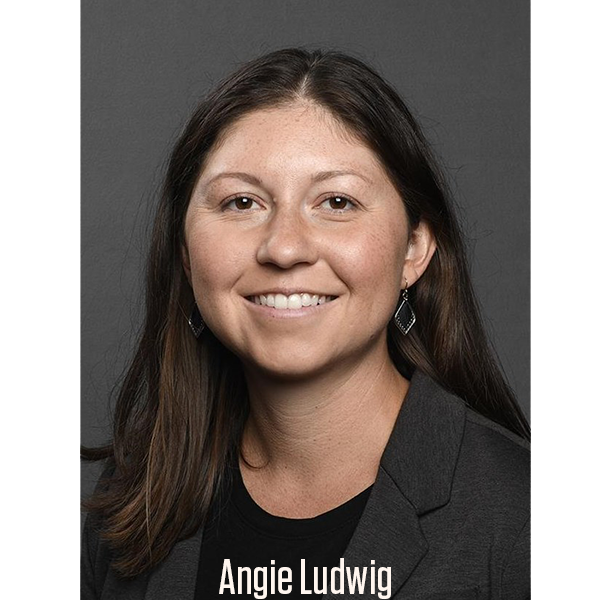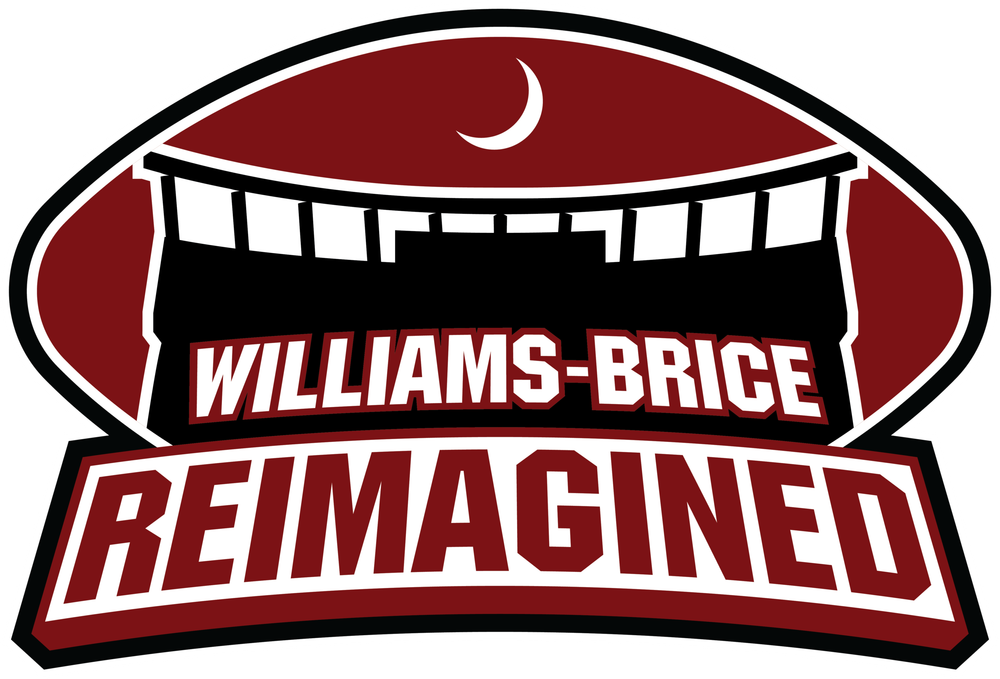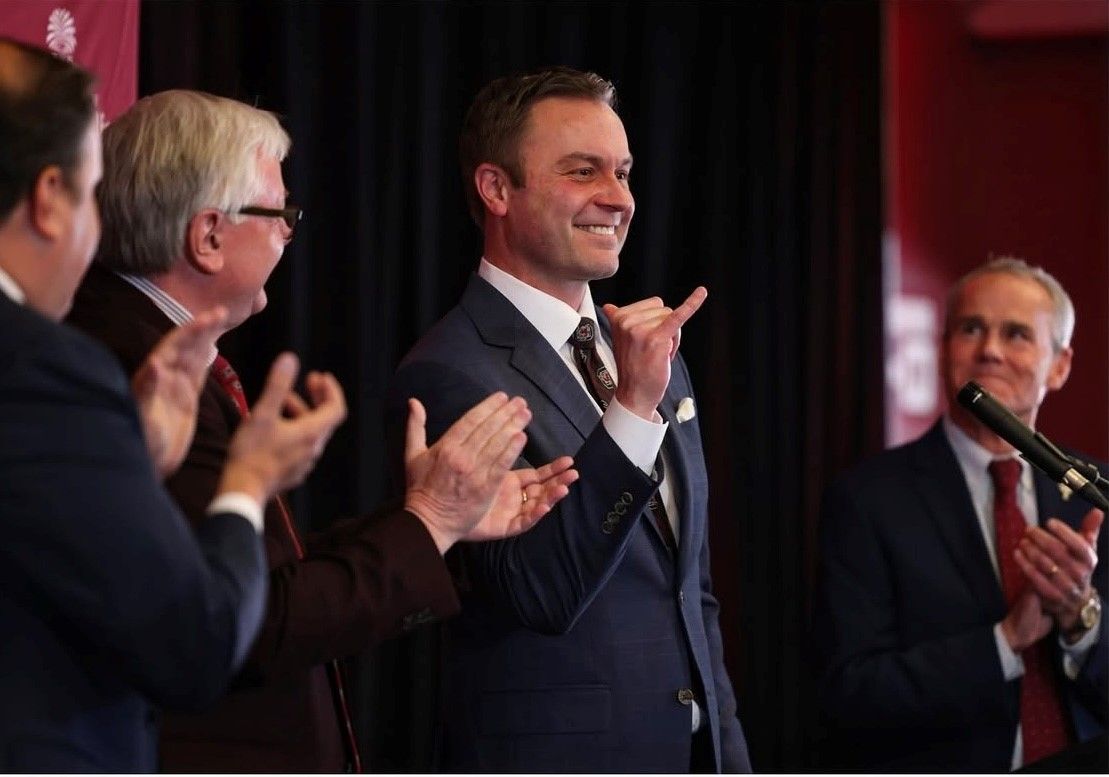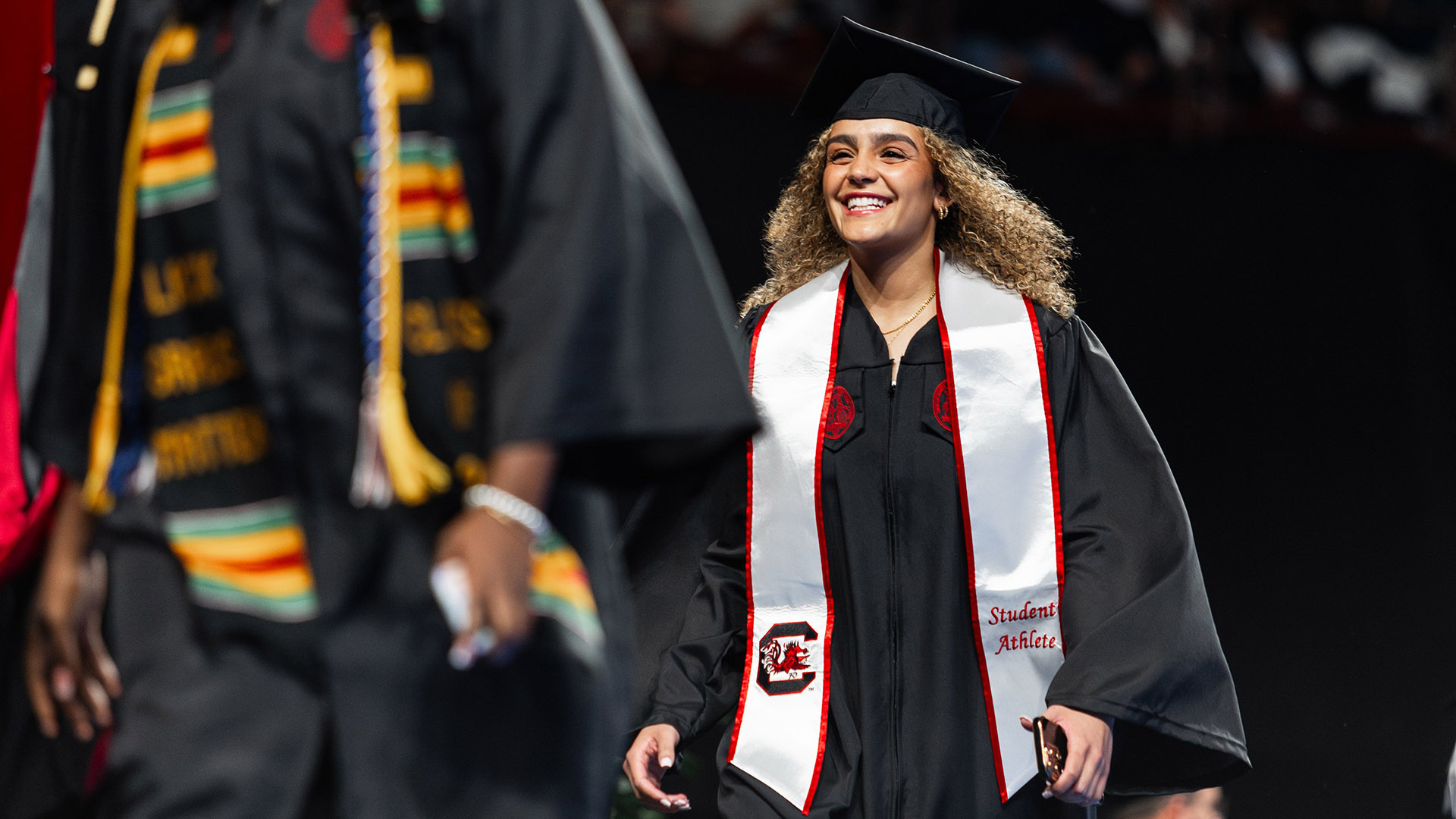National Girls and Women in Sports Day is More Than Just Girls/Women Who Play Sports
February 7 is National Girls and Women in Sports Day. The annual event was established in 1987 to recognize the important part women play in sports. It continues to raise awareness and the need to promote gender equality. The idea of women in sports isn’t just about athletes and coaches on the field or on the court. It’s about women who work in sports whether it’s in the media, as officials, or in a variety of roles in administration for professional, collegiate, and high school athletics programs.
“We’ve made a lot of progress over the years, and it’s great to see,” said Hilary Cox, South Carolina’s Associate Athletics Director for Administration, who was a softball student-athlete at the University of North Georgia, graduating in 2012. “This is a great opportunity to not only highlight the achievements of girls and women in sports, but also the effort and the progress that is still needed.”
Some women, such as Cox and South Carolina Executive Associate Athletics Director Maria Hickman, who played basketball at Mars Hill College, were collegiate student-athletes, but many women who work in sports were not, just like many of their male counterparts.
“Women in sports has become normalized and is less the exception and more the rule,” said Judy Van Horn, South Carolina’s Deputy Athletics Director for Internal Operations and Risk Management. “There are far fewer barriers today than what women in sports had to face in years past. Change has come because there were women willing the pay the price to do what it takes to find success. It happened because there were men who supported them, hired them, and promoted them.”
“It’s an opportunity to think about how far girls and women in sports have come,” said Alyssa Lang, a 2015 South Carolina graduate and current SEC Network studio host and reporter. She started as an intern at WLTX television in Columbia as a sophomore and worked her way up the chain there, eventually becoming the weekend sports anchor before taking another TV job in Jacksonville, Florida, and later being hired by the SEC Network in 2018. “It’s great to think about the progress that has been made and what goals are still out there to reach. It’s a great time to pay homage to women who I looked up to and made it possible for me to do this job.”

National Girls and Women in Sports Day has evolved over the years to not only recognize female athletes at all levels, but to celebrate the progress that has been made since Title IX was passed in 1972, which provided equal access to sports for girls in the United States.
“National Girls and Women in Sports Day is very special to me,” Van Horn said. “Back in 1993, I founded and developed an annual event honoring outstanding female athletes from Michigan high schools in recognition of National Girls and Women in Sports Day. It continued through 1996 and was the largest event promoting National Girls and Women in Sports Day in the United States at that time. Participating high schools grew from 13 to 270, and attendance grew from 40 to 1400 with a state-wide network of opinion leaders and media promoting the event. Female athletes did not receive much recognition back then. Being honored for their athletics success was deeply personal for them and inspirational for me.”
Everyone has different reasons for wanting to work in sports, but it’s important to recognize that simply having it become an option as a career with opportunities for advancement in what was once a male-dominated field shows how opinions have changed over the years.
“I wanted to work in sports because I always played sports as long as people let me play them!” said Angie Ludwig, South Carolina Assistant Athletics Director for Compliance who is also a 2011 graduate of the University. “I didn’t play in college, but I love the team atmosphere, the focus, and the discipline. I’m from a poor family, and I’m a first-generation college student from my family. I saw sport or academic scholarships as the only way to get to college. It’s always had a soft spot in my heart for the opportunities that sports allow. I love working with student-athletes to help them get their shot, wherever it may lead them.”

“The support I get from a lot of my male counterparts is unbelievable,” Lang said. “I’ve obviously had situations where I didn’t feel supported or that I didn’t belong in the room, but that’s not nearly as much the other side of it. I feel much more supported and uplifted. We live in a world that’s not always going to be positive all of the time, but if you look for the negative things, you will probably see more negative things. I find that there is a lot more positivity around women in sports right now.”
“You’re starting to see more women at the executive level,” Cox said. “More women are becoming athletics directors. More women are running programs. You are seeing more women in the NFL and Major League Baseball now. It’s exciting to see.”
“I fell into college athletics,” said Van Horn. “I stayed in it out of a deep respect for the profession and the people in it. In particular, the opportunities that coaches have to grow their players athletically and truly make a difference, personally. As an administrator, my competitive juices get flowing by helping the department and staff come up higher as an enterprise and positively impacting the student-athlete experience.”
For each generation of women who work in sports, having a mentor is important.

“There were some key women who inspired me,” Van Horn said. “Marcy Weston, a former administrator at Central Michigan University, in particular. In addition, many male colleagues helped me get higher level jobs. Then there are the many women with whom I would connect at conferences. With the hours we worked on campus, these peers from other schools became some of my closest friends and me theirs. We encouraged, supported, and inspired each other. It helped make the journey that much more satisfying.”
“If you can see it, it makes it easier to believe it,” Cox said. “If you see women in those leadership positions, and you see women who are head coaches, you have more belief that you can actually achieve that. It’s a snowball effect. Now girls have someone to idolize. I think I always knew that I wanted to work in sports. I really thought I was going to coach, but my Athletics Director at North Georgia, Lindsay Reeves, was instrumental in getting me on the administrative track. It was nice, as a woman, to see her in a leadership position.”
“I started under (Executive Associate Athletics Director) Maria Hickman with football advising,” Ludwig said. “It is sort of a ‘if you can see it, you can be it’ kind of thing. Maria was working with football and eventually got promoted to head of academics and now her current role.”
“Suzy Colber was one of the first women in sports I saw on television,” said Lang, while also citing several male ESPN hosts who provided inspiration. “She was one of the first people who really trailblazed, at least in my brain, and made me realize this is something I could do. There was also the meteoric rise of Erin Andrews and what she has done and has continued to be this personable brand on the sideline in college football and the NFL. Laura Rutledge here at the SEC Network is someone I’ve had the chance to talk with the most and follow in her footsteps in a way in some of her assignments. She has been a great resource for me.”

While there has certainly been tremendous progress in the last half century since Title IX was passed, there is still work to be done.
“It’s definitely more accepted now, but at the same time it is more common for me to be in a meeting and still be the only woman in the room than it is for me to be in a meeting full of women,” Cox said. “There are times that you have to be comfortable being the only woman in the room.”
“The best is yet to come,” Van Horn said. “It is important we appreciate how far girls and women have come while continuing to cheer them on to further heights.”
“Women working in sports is way more commonplace now,” Ludwig said. “People don’t really bat an eye to see a woman in what had been a traditionally male-dominated space. That’s not to say that numbers are reflective in every space.”
“The industry can work to get women more opportunities,” Lang said. “You look in the NBA and the NFL, and I think there are plenty of areas where women have goals to get into those spaces. In my field, I think there’s room for more women in the analytical space with college football. I have my show (“Out of Pocket” on the SEC Network) that allows me to sit in the analytical seat and be more of a talking head, and that was the first female-led show on the SEC Network that existed in the college football space. I think women can be in roles where they break down the game and be seen as someone who understands what’s happening on the field from an Xs and Os standpoint.”

As for the future, the women who work in sports now look forward to setting an example for younger women and girls today.
“One thing I didn’t realize when I was growing up was all the different types of jobs you can have working in athletics,” Ludwig said. “Until I got to college, I thought you had to be coach and that was pretty much it. If you have a passion for sport, don’t think that you have to play it or have to coach it. There are so many ways that you can be connected to what you love and be impactful.”
“Don’t let being a woman hold you back,” Cox said. “You’re going to have to work harder than some other people. You have to put yourself out there. Don’t let the fear of rejection stop you from following your path. At some point you have to make your own opportunities and force people to tell you no.”
“You sort of have to grab hold of the fear and accept that there will be some nerves,” Lang said. “You have to be OK with messing up because you’re going to make mistakes. I still have to remind myself of that to this day!”
“Find your passion and do what it takes to realize it,” Van Horn said. “Be sure to pay it forward and do what you can to lift someone else up.”












